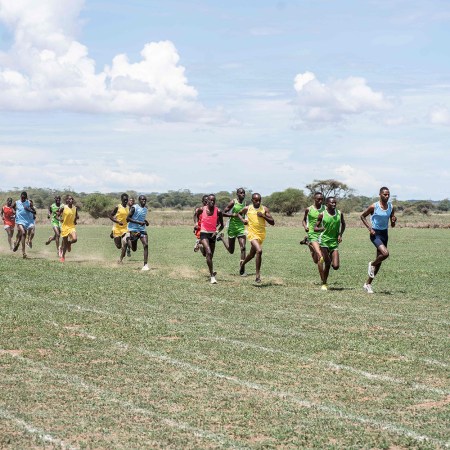Prior to the pandemic, the working life of a digital nomad was reserved for a select group of people, generally of the freelance variety. But the sudden and unanimous rise of remote work at the onset of 2020 invited a rare opportunity for salaried workers to pack their bags and set up shop in an exotic locale for an extended period of time. Recognizing said opportunity, tourism authorities set about doing away with any red tape that would make it difficult for workers to do so, and eventually “Digital Nomad Visas” came into play.
It proved a smart move. Per a report from MBO Partners, nearly 17 million Americans identified as digital nomads in 2022 — up 131% from 2019 — and destinations that offered visa programs like Brazil, Mexico, Barbados, Thailand, Germany, Norway and Spain became hotbeds. At the end of 2022, Airbnb went on to launch a new digital nomad policy, allowing employees to work temporarily in more than 170 countries, signaling that the trend wasn’t — and isn’t — in jeopardy of fizzling out, either.
And why would it? Back in January, Forbes reported that 81% of digital nomads are highly satisfied with their work and lifestyle compared to 68% of nondigital nomads, even in spite of generally low levels of employee engagement in 2023. But we don’t need more research to support the idea that time out of office, and traveling, are good for mental health.
Instead, perhaps we should be shining a light on the implications the uptick in digital nomads has had on the places they’ve put down their temporary roots. Has it been a mutually beneficial relationship?
The Truth About Working Remotely on a Tropical Island
With tourism struggling, a number of Caribbean countries are enticing Americans with tax-free short-term visasAccording to Gilbert Ott of travel blog God Save the Points, the answer is yes. And also no. Obviously, remote workers have consistently contributed to economies that may have otherwise suffered, or at least suffered more, in the wake of a COVID-related tourism drop off. Visa fees have also helped stem the bleeding. Additionally, digital nomads are also more likely to immerse themselves in local culture — purchasing local goods and patronizing local businesses — than other tourist types.
The nature of short term rentals, however, is such that they tend to put a strain on hotels and, more importantly, residential communities (read: they impact the availability of affordable housing). In fact, Mexico City residents and housing activists have likened it to “modern day colonization,” and it’s the exact reason why New York City is currently in the process of cracking down on short term rentals. And while many digital nomads are flocking to places where the cost of living doesn’t emulate New York, it’s all relative. Where the cost of living is lesser, earnings tend to be lesser, too.
“When larger influxes of digital nomads push into a market without price sensitivity, prices go up and many local people who could previously afford a certain way of life in a desired neighborhood find themselves pushed further and further out, or in,” Ott posits. Further, it puts those destinations at a higher risk of gentrification and erasure of local customs. Thailand, for example, is one of the largest hubs for digital nomads. That said, very few digital nomads are taking the time to learn Thai.
One could argue that it’s the lesser of two evils — a price worth paying. Ott believes that, for many countries, the positives greatly outweigh the negatives. All of that said, based on the current trajectory, it would be surprising if destinations where digital nomads are especially prevalent didn’t start to implement certain measures to protect locals. Mexico City, for its part, has tossed around the idea of regulating rent “in accordance with the salaries of inhabitants.” In other words, the nomadic lifestyle may not be going away, but the financial responsibility of maintaining it may soon fall more to the nomads than the local communities in which they reside. And, frankly, it should.
Thanks for reading InsideHook. Sign up for our daily newsletter and be in the know.


















